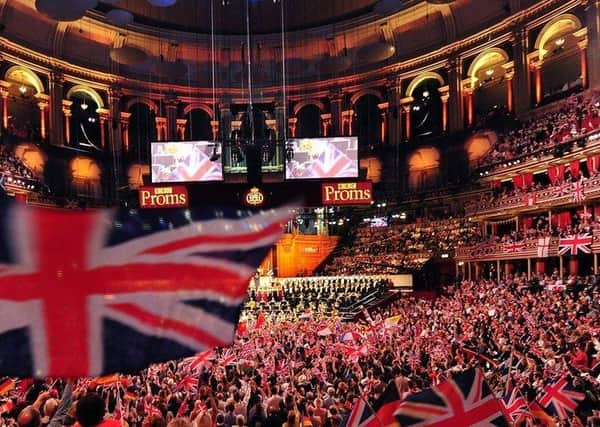COMMENT: Why making pupils sing ‘One Britain One Nation’ anthem is so disturbing


That’s because it calls to mind those chilling images from totalitarian regimes – both past and present – where children for whom schooling is less a matter of education than indoctrination are compelled to sing a daily song in praise of the motherland and its glorious leader.
My hunch is that the uncomfortable echoes of that mean an overwhelming majority of head teachers will have nothing to do with the singing of the One Britain One Nation anthem, and they will be absolutely right to turn their backs on it.
Advertisement
Hide AdAdvertisement
Hide AdIts chorus of Strong Britain, Great Nation Strong Britain, Great Nation Strong Britain, Great Nation Strong Britain, Great Nation feels just wrong, less an affirmation of patriotism than of nationalism, an altogether more unsavoury sentiment.
Far from being an expression of pride in Britain, this song and the subtle pressure being brought on schools to make their children perform it feels weirdly un-British. It isn’t the sort of thing we do in this country of ours, or should be comfortable with doing. There is a whiff of propaganda about it, waving the Union Jack not out of joy, but because of triumphalism.
The endorsement of the song’s performance by Boris Johnson and the Department of Education is a mistake, born of the worst and tackiest sort of populist mentality.
Political opponents who have derided the singing of the song as ludicrous are only half-right. Concern about it should go farther than that.
Advertisement
Hide AdAdvertisement
Hide AdClearly, the Government’s backing of it has not been thought through, because even a moment’s reflection is enough to raise uncomfortable parallels with regimes where the young are compelled to sing or chant specially-composed doggerel lauding their homeland.
Nor is it right that such a song should have been foisted on schools without reference to parents of pupils – an online backlash against the song is an expression of how badly it sits with most people’s notion of how to voice the sense of patriotism that is deeply ingrained in Britain.
No fault can be attached to the Bradford primary school pupils who composed the words, under the banner of the One Britain One Nation campaign founded by a retired police inspector from the city, Kash Singh.
No sensible person could disagree with his campaign’s mission, expressed on its website, to promote such core British values as fairness, tolerance and mutual respect.
Advertisement
Hide AdAdvertisement
Hide AdBut this anthem is not the right way to go about that. Though undoubtedly well-meaning, and the product of honourable motives, it is nevertheless misguided.
It is too prescriptive, too redolent of compulsion, of people being ordered what to do and think instead of making their own choices about how best to live their lives in a spirit of fairness, tolerance and respect for others.
And isn’t nurturing those values in their pupils at the heart of what schools do every day? They don’t need to have a song about it pushed on them, and then be pressured into performing it by the Government.
The idea that its performance should become an annual ritual doesn’t sit well with the way that we do patriotism in this country.
Advertisement
Hide AdAdvertisement
Hide AdWe’re mostly undemonstrative about it, but it’s there all the same, an undercurrent of quiet pride in Britain and a love for the country.
That makes it all the more stirring when we do celebrate and give joyous voice to national pride. It’s currently being heard in the lusty singing of the National Anthem by England fans at Wembley for the Euros.
In a few weeks’ time, it will be heard in the singing of Rule Britannia, Land of Hope and Glory, and Jerusalem at the Last Night of the Proms.
And this time next year, the country will be swathed in Union Jacks when millions celebrate the Queen’s Platinum Jubilee, all spontaneous and all the more uplifting for being free of any hint of compulsion.
Advertisement
Hide AdAdvertisement
Hide AdThere is no shortage of patriotism or even the slightest unwillingness to celebrate the best of what our country does. Witness the applause for the NHS and carers that rang out across the country every Thursday night in the darkest days of the pandemic.
Children don’t need to be made to sing this song in order to foster in them a sense of pride in Britain. They will grow up into patriots just like their parents and grandparents did. That’s how it happens.
Its heart may be in the right place, but the mass singing of this song is neither helpful nor appropriate. It simply does not belong to our traditions or mentality as a nation. Schools would do their pupils a service by refusing to perform it.